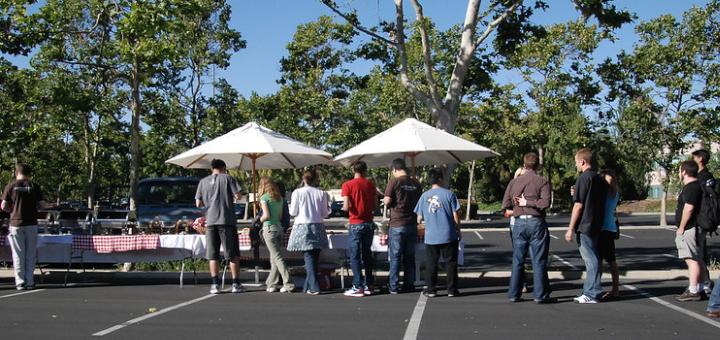A retired missionary learns to tell Bible stories

How I heard about storytelling
A missionary colleague kept pestering me to go to a three day Bible storytelling workshop. After she attended, her TESL (Teaching English as a Second Language) classes came to life.
I eventually went, discovered the training method was not to memorise but to imagine. I could do that! And so I got started and was sold on the method. I immediately started using it in my TESL class and the students said they could remember the vocabulary better.
Why I went to a four-day training
I knew about chronological Bible storytelling from when I was a missionary in Taiwan and had used it many times in evangelistic opportunities. Now I am ‘retired’ I have the same opportunities to evangelise (I live in a multi-cultural community) and was looking for an approach that would not be too confronting. After the first workshop I attended I told my friends at church and they were excited to learn. They plan to introduce it in our Church Sunday School Teachers, Seniors Group and others.
At the end of the day our leader asked, “What was the most memorable experience of the day?”
I answered, “When I queued up at coffee shop I got talking to the lady behind me and told her the story of the crucifixion. At the end I asked, ‘What did you learn about Jesus from this story?’ ‘Mmm, that requires some thinking about,’ was her response to two questions I asked her. Then she said, ‘I have a question, why didn’t Jesus come down from the cross?’ (in response to the taunting questions by the passers-by)? An excellent question don’t you think? ‘Jesus couldn’t come down from the cross,’ I said, ‘Otherwise Satan would have won the battle between Life and Death.'” (For an alternate way to deal with questions read this post about not answering questions.)
Another time my partner and I approached a lady, “Could we tell you a Bible story?”
“I know lots of Bible stories, but you can tell my son one. He’s just there queuing for the BBQ sausages. He lives with his dad and he needs to hear Bible stories.” Dutifully we accosted the son who was more than pleased to listen to our stories, with mum hovering behind us with an umbrella for shade. This boy, and his group around him, listened most politely and attentively. Now, when go in pairs, one tells a story, the other asks the questions, and then we reverse the roles. “Would you like to hear another story?” “I’d like to hear any story about Jesus.” Isn’t that lovely? He said when he was young he went to a Catholic school and heard many stories about Jesus.
Actually, many of the people we talked to had Catholic backgrounds. One teacher at the Catholic school patiently listened to a story. I knew he knew it, but continued anyway. That was often the case. People knew part, or whole, of the story but, because of the unique way we tell the stories, still listened with interest. My assessment is that, for many of the people we told stories to, it was a reminder for them to get back to church or to reading their Bibles.
We didn’t only have good experiences. It was a sad experience to have a Tongan mother refuse to listen to our stories. However, one of her daughters, sitting beside me, listened to a couple. Her eyes were opened to the truth of Easter. Later, her brother came and sat at the table. He wanted to hear the stories too. We gave him a CD of Easter stories (these were readily available on the tables in the food area). The mother was baptised by the Mormons year ago, but doesn’t go anywhere now. Pray the mother won’t throw the CD in the bin!
Shared with permission from TB.


























I almost cringed when I read about the way I answered a question from the hearer. Now, after almost two years experience in telling stories I listen, sometimes am the questions myself, but marvel that the hearers, after they have learnt several stories can tell me the answers to their questions. TB
yes, isn’t it great how we improve!?